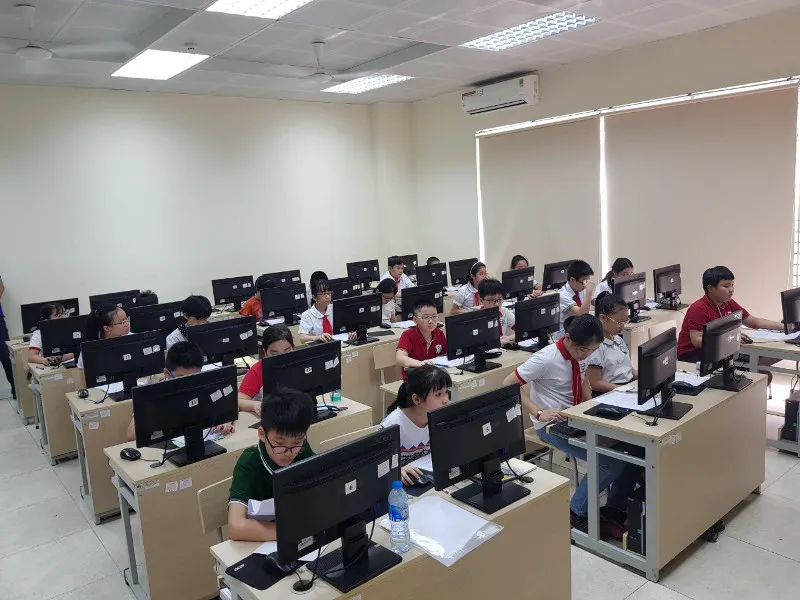Vietnam among four countries achieving gender parity in digital literacy: UNICEF
It needs early exposure and access to technology, digital and life skills training, and efforts that address harmful gender stereotypes, especially within families and online violence.
Vietnam is one of four countries achieving gender parity in digital skills, according to a recent report by the United Nations Children's Fund (UNICEF).
In Vietnam, gender parity is observed in both foundation reading skills and digital skills, where gender parity is observed in the analyzed age cohorts. This indicates both girls and boys aged 7-14 are acquiring foundational reading skills at similar rates, and adolescent girls and boys, as well as young men and women aged 15-24, are acquiring basic digital skills at comparable rates.
However, achieving gender parity does not necessarily imply that the skills are prevalent across the population.
The report entitled "Bridging the digital divide: Challenges and an urgent call for action for equitable digital skills development" took a close look at the gender digital divide among young people aged 15-24 years.
A computer class at Thanh Xuan Secondary School in Thanh Xuan District, Hanoi. Photo: Dai Nghia |
The report analyzed available data on internet use, mobile phone ownership, and digital skills in mostly low-, lower-middle-, and some middle-income economies. It showed that around 90% of adolescent girls and young women do not use the internet in low-income countries, while their male peers are twice as likely to be online.
Though advancing access to the internet is important, it is insufficient for digital skills training. For instance, in most countries analyzed, the share of youth with access to the internet at home is much higher than that of youth with digital skills.
UNICEF Director of Education Robert Jenkins said that closing the digital divide between girls and boys is not only having access to the internet and technology. It's about empowering girls to become innovators, creators, and leaders. "If we want to tackle gender gaps in the labor market, especially in Science, Technology, Engineering and Math (STEM) fields, we must start now by helping young people, especially girls, gain digital skills," stressed Robert Jenkins.
Though more gender-disaggregated data is needed to better monitor, understand, and work toward digital inclusion, the report finds that girls are being left behind in an increasingly digital and connected world.
Globally, girls are the least likely to have the opportunities to develop the skills needed for 21st-century learning and employment, according to the report. On average across 32 countries and territories, girls are 35% less likely than their male peers to have digital skills, including simple activities like copying or pasting files or folders, sending emails, or transferring files.
To break the barriers holding girls back, they need early exposure and access to technology, digital and life skills training, and efforts that address harmful gender stereotypes, especially within families, and online violence.
Besides, only by applying gender-transformative teaching approaches, can barriers towards girls advancement in STEM be broken down, ensuring equal access for all students.
UNICEF is calling on governments and partners to close the gender divide and ensure that girls have the opportunities to succeed in a digital world. Some of the recommendations include teaching digital skills equally to girls and boys in and out of school; and promoting girls' access to peer learning, internships, and job shadowing in the digital/STEM world.










